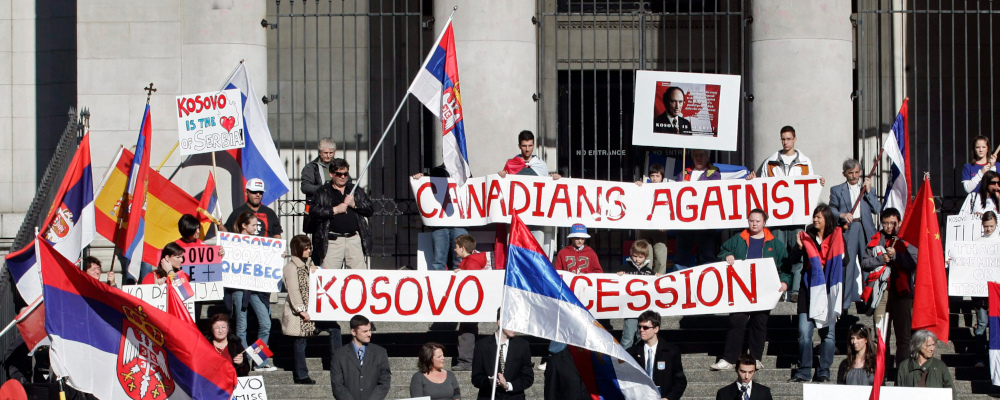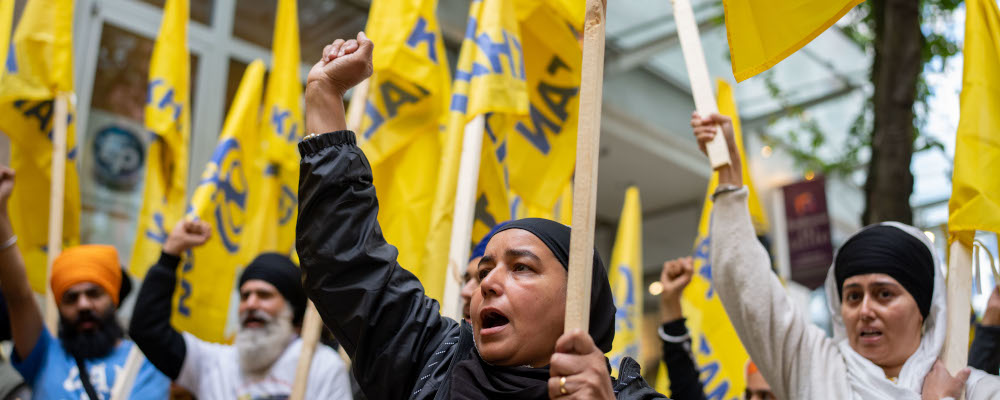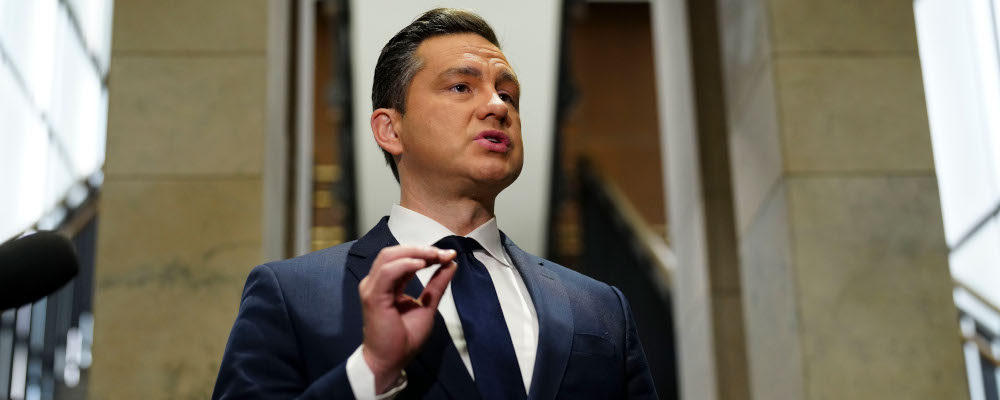The writer Stephen Marche is a clever commentator on Canada and the world. In an interesting essay in the Globe and Mail on January 27, he wrote about multiculturalism:
The foundation of Canadian multiculturalism rests on a basic piece of common sense: Leave your shoes at the door. Importing the world’s geopolitical nightmares into our country would end multiculturalism, and right quick. If the police and the courts allowed Ukrainian Canadians to vandalize the businesses of Russian Canadians who support Vladimir Putin, or if Sikhs were allowed to vandalize the businesses of Narenda Modi’s supporters, the result would be chaos, despite the entirely justifiable rage of those communities.
Common sense, yes. But Marche goes on to say rightly that “common sense, as usual, doesn’t apply when it comes to the Jews.” That is clear to anyone watching the ways in which the aftermath of the October 7 Hamas atrocities and the Israeli assault on Gaza has played out in Canada.

But is the way Canadians reacted to the Israeli-Hamas war a unique event? Not if we recall the destruction in 1985 of a fully loaded Air India passenger jet by Canadian Sikhs seeking the independence of what they call Khalistan in India or the recent murder of a Canadian Sikh leader allegedly by Indian intelligence agents in British Columbia. Geopolitical nightmares always seem to have a way of intruding on our populace.
A little history might be useful here. Because parts of Ukraine were located in the Austro-Hungarian Empire during the Great War many Ukrainian-Canadians were interned, as were many Germans. In the 1930s Italo-Canadians in substantial numbers supported Mussolini’s Fascist party, their cause aided and abetted by the Italian consuls in Montreal and Toronto. Some would be interned once Canada declared war in 1940 as a result. The Hitler government also looked for sympathizers to the “truths” of National Socialism, and the Deutscher Bund (Canadian Society for German Culture) enrolled German Canadians in substantial numbers with support from Berlin’s diplomatic representatives; again many would be interned. So too would Canadian Communists whose loyalty to the Soviet Union made them suspect before Hitler invaded the USSR in June 1941.
For its part, the Japanese consulate in Vancouver paid for propaganda in media in British Columbia, and it was directed by Tokyo to recruit spies. While the consul-general’s success in recruitment remains unknown, Japanese Canadians were moved inland after the Pearl Harbor attack on December 7, 1941, and a substantial number of pro-Japan issei and nisei were interned in camps.
Of course, those events occurred before multiculturalism became government policy under Pierre Trudeau in 1971, and his successors offered apologies in profusion for our past sins (but not to the Germans!). But has multiculturalism worked more recently in making sure the old country shoes came off at Canada’s door?
Not really. During the break up of Yugoslavia in the 1990s, Canadian Serbs and Croats fought in the street in front of the Yugoslav consulate in Toronto. The first Croatian minister of defence was an Ottawa restaurant owner and house painter who raised some $200 million for his newly independent nation. Journalist Carol Off noted that Gojko Susak (who had lived in Canada for more than two decades) presided over the ethnic cleansing of Serbs in the Medak Pocket. If he had not died before the International Criminal Court was created, he would certainly have been tried as a war criminal. It was not only Croats, of course.
A Serb Canadian was sentenced to three years in jail in September 2005 for taking United Nations peacekeeping personnel—including Canadians—hostage in Serbia in May 1995. And when Sri Lanka was in a civil war in the early 2000s, Tamils in Canada raised funds for their countrymen, even getting Paul Martin, then the finance minister, to appear at a 2001 money-raising dinner. Ottawa later declared the Tamil Tigers a terrorist organization.
What was going on? Clearly, the old country ties remained strong in immigrants to Canada. Ethnicity is a powerful force, naturally enough, but official multiculturalism encouraged ethnic communities to retain their identities. There were language schools funded by Ottawa, in addition to newspapers, community centres, and dance troupes. The money flowed because there were votes out there waiting to be harvested.

What was not going on was any effective effort by the state to turn immigrant communities into Canadians. Naomi Klein, (not someone I usually quote approvingly), wrote in 2005 after terrorist attacks in London “that the brand of multiculturalism practiced in Britain (and France, Germany, Canada …) has little to do with genuine equality,” she said. She continued:
It is instead a Faustian bargain, struck between vote-seeking politicians and self-appointed community leaders, one that keeps ethnic minorities tucked away in state-funded peripheral ghettoes while the centres of public life remain largely unaffected by seismic shifts in the national ethnic makeup.
Surely she was right, as we can readily observe when our parties scramble for ethnic votes in the suburban areas of the nation’s large cities.
Most Canadians believe immigration is important for Canada, the present difficulties notwithstanding. But polling also shows that most also believe that we must make Canadians of those who come here. It is not enough to leave them alone in the hope that they will quietly assimilate into accepting our values—peace, order and good government, civility, equality, tolerance, respect for rights—and that if they wish to join us they must understand and accept this. Canada is part of Western Civilization, not a community of communities, as Joe Clark put it, not a post-national state, as Justin Trudeau proclaimed. We are a well-established pluralist, democratic, secular nation.
To paraphrase the American writer David Rieff in the New York Times some years ago, the multicultural fantasy in Canada was that, in due course, assuming that the proper resources were committed and benevolence deployed, immigrants would eventually become liberals. As it was said, they would come to “accept” the values of their new countries. It was never clear how this vision was supposed to coexist with multiculturalism’s other main assumption, which was that group identity should be maintained. But by now that question is largely academic: the Canadian vision of multiculturalism, in all its simultaneous goodwill and self-congratulation, is no longer sustainable. And most Canadians know it. What they don’t know is what to do next.
Stephen Marche was right in saying that the old country must be left behind. It is long past time that Canadians figure out how to make this work.
Recommended for You

RCMP spending to protect MPs may have risen 112% since 2018, as Canadian politicians face greater rise in threats

Adam Zivo: No Dr. Bonnie Henry, drug prohibition is not ‘white supremacy’

Geoff Russ: A future Conservative government must fight the culture war, not stand idly by

DeepDive: Two-parent families: why they’re so important—and why there’s cause for concern in Canada











